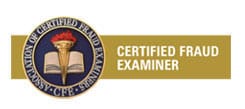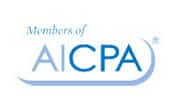Government Fraud Solutions
With the increase of illegal financial crime, government agencies are unknowingly vulnerable to data and information being stolen ― putting American taxpayers at risk of identity theft. Serving Indianapolis, our professionals at Certified Fraud & Forensic Investigations are experienced in investigating many types of government fraud, including tax return fraud, asset misappropriations, and corruption.
Be proactive, and partner with CFFI to detect and prevent government fraud. Contact us at (317) 313-7948 to discuss your options.
Tax Return Fraud Investigations
Although electronic tax filing has made the process of filing taxes simpler, tax payers across the nation are still subject to identity fraud. Stolen Identity Refund Fraud (SIRF) is a crime perpetrated against state departments of revenue and the IRS. Tax fraud occurs when a criminal files an income tax return using someone else’s Personal Identifiable Information (PII), with or without the victim’s knowledge to request a refund.
Fraudsters do this by using PII such as name, address, or Social Security number (SSN) on the paper or electronic tax forms to request a fraudulent refund. The possibility of this crime occurring should be low; however, this crime has become a crime of opportunity. Thousands of people with easy access to large volumes of PII, such as hospital administrators, tax preparers, bankers, and insurance agents have been found to be filing fraudulent returns costing the state DORs and the IRS tens of billions of dollars each year.
SIRF was actually the number-one consumer complaint in 2014 according to the Federal Trade Commission (FTC), making it the fifth year in a row topping the FTC’s annual list of complaints. This may not seem like an alarming statistic until you consider the number of US dollars that the IRS handles every year. During the 2014 fiscal year, the IRS collected almost $3.1 trillion in federal revenue and processed almost 240 million returns. Over 116 million individual income tax return filers received a tax refund, which totaled over $330 billion.
In an audit by the US Government Accountability Office (GAO), attempts of identity theft refund fraud were estimated to total $25.6 billion. Of those claims, 18% were erroneously paid out to a total of $5.1 billion. That is $5.1 billion that IRS knows they paid. According to the GAO report, IRS lacks a good estimate of the costs, benefits, and risks, and the IRS hasn’t assessed the level of uncertainty in its number.
Contact a Government Fraud Specialist Now
In addition, the Earned Income Tax Credit (EITC) is a $60 billion program. It is estimated that the EITC credit is defrauded by individuals claiming children that don’t exist or claiming real children using stolen SSNs. This is another form of tax fraud using identity theft. This is estimated to be 25% of the entire EITC refunds or $15 billion, in addition to the $5.1 billion listed above for SIRF.
How can an organization that handles so much money and has such a large responsibility in our country’s infrastructure not actually have a good understanding of its totals? The short and obvious answer is that the department is never ahead of the individuals who are committing tax fraud. But the reasons behind why the department is never ahead are far more complex. Workforces have been cut, and budgets have been reduced while the number of filings have increased. Don’t let the government agency you work for go under fire for not knowing the truth. Call CFFI at (317) 313-7948 today.
Expert Fraud Auditors
Frauds can be divided into three main categories: (1) financial frauds, (2) asset misappropriations, and (3) corruption, such as bribery. Generally speaking, financial frauds are likely to be material, and thus financial audit procedures have the potential to detect them. However, studies show that only 3% of fraud cases reported are discovered in an audit. The truth is that the procedures for financial audits are designed to detect material misstatements, not immaterial frauds.
There are differences between the procedures of fraud auditors and those of financial auditors. Fraud auditors look behind and beyond the transactions and instead focus on the substance of the transactions. The fraud audit doesn’t question if there is a solid internal control in place. It does not question if the accounting process complies with the accounting standard. It is looking for the weak link in a system’s chain of control. A different angle of questions is asked such as:
- What deviations from conventional good accounting practices are possible in this system?
- How are off-line transactions handled, and who can authorize such transactions?
- What would be the simplest way to compromise this system?
- What control features in this system can be bypassed by higher authorities?
- What is the morale in the work environment, and could it lead an employee to choices of crime?
Get in Touch with a Government Fraud Auditor
Fraud auditing involves a specialized approach and methodology to discern fraud; that is, the auditor is looking for evidence of fraud with the single purpose to prove or disprove that a fraud exists. In the broadest sense, it is an awareness of many components of fraud, such as the human element, organizational behavior, knowledge of fraud, evidence and standards of proof, an awareness of the potential for fraud, and an appreciation of the red flags. Fraud auditing is the responsibility of professionals known as fraud auditors.
There are patterns to every fraud case—these help fraud auditors uncover illegal activity. Most fraud has the same indicators that aid the criminal in his crime and the auditor in his search for the same. These include lax management, history of unethical behavior, document tampering, and disregard of procedure. These patterns are found wherever there is a fraud crime in progress. Some patterns are less obvious than others, but they are still present.
In order to find these patterns, fraud auditors often go outside the ledger of accounts to find fraudulent transactions. This may include reviewing receipts, not only from the company, but from customers as well. Any inconsistencies in these numbers could help uncover an act of fraud. These auditors also interview employees, customers, and sometimes clients to find out if a fraud has taken place.
As a firm comprised of CPAs and private investigators, we investigate cases of government fraud using our forensic accounting expertise and vast knowledge of accounting. Call our Indianapolis office at (317) 313-7948 today to get the answers you need to uncover tax fraud and other financial fraud.






